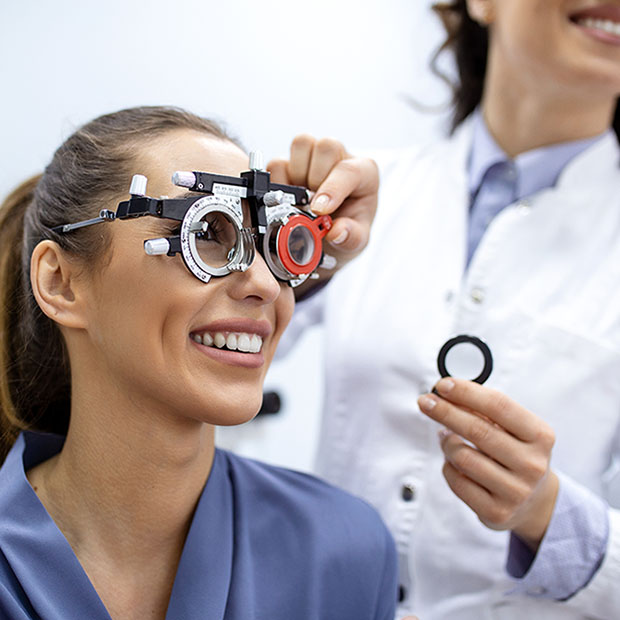How Often Should I See an Eye Doctor?

Eye exams are a crucial part of maintaining our overall health.
Regular eye exams are essential, even if you don’t think you need a new glasses or contact lens prescription. Our eyes are complex organs, and a lot can go wrong without noticeable symptoms. Regular check-ups are the best way to detect both minor issues and sight-threatening conditions early.
Determining Your Ideal Eye Exam Frequency
What does “regular” mean for your eye exams? It varies. Eye exam frequency should be tailored to your age, health, and specific risk factors for eye diseases. Here’s a general guide:
- Infants and Children: The journey to maintaining lifelong eye health begins early. Parents should schedule their child’s first eye exam at six months old, again at three years, and before starting school. These early assessments are vital to identify and address any vision problems that could impact learning, as numerous treatable eye conditions in children often go unnoticed.
- Teens and Adults: For this group, a standard recommendation is an eye exam every two years. This routine helps track any changes in vision and ensure that corrective measures, like updating prescriptions, are taken on time.
- Seniors (60 and older): At this age, annual eye exams are crucial. Aging increases the risk of several eye conditions, making frequent check-ups important for early detection and management.
Eye Disease Risk Factors
Understanding risk factors can further personalize the frequency of your eye exams:
- Genetic Predisposition: Family history of eye conditions such as glaucoma, macular degeneration, or even systemic issues like diabetes or hypertension can increase your risk.
- Medications: Some can dry out your eyes or cause other ocular side effects. It’s essential to monitor these effects to prevent them from developing into more severe issues.
- Lifestyle Choices: Tobacco use significantly escalates the risk of many sight-threatening conditions. Similarly, exposure to UV light is a controllable risk factor. Wearing UV-blocking sunglasses during daylight hours can protect your eyes from cumulative damage over time.
When to See an Eye Doctor Sooner
Follow the recommended schedule for routine eye exams, but if you experience any new symptoms, don’t delay seeking care:
- New sensitivity to light or signs of an eye infection.
- Loss of night vision or increased difficulty with night driving.
- Any sudden onset of blurry vision.
- Frequent headaches, which can often be linked to untreated vision problems.
- Noticeable increase in floaters, bright flashes, or changes in peripheral vision, as these could indicate retinal detachment, a serious condition requiring prompt treatment.
We Look Forward to Seeing You
It’s easy to forget about scheduling an eye exam when it’s only due every few years. We encourage our patients to adhere to the recommended timeline for their specific situation. If it’s been a while since your last visit, now is the perfect time to reset the clock. Schedule your next appointment today!